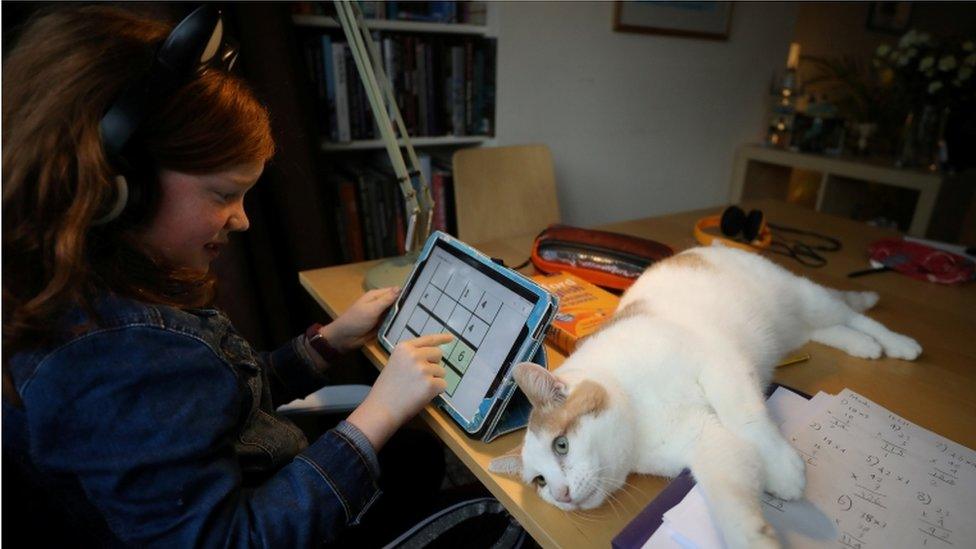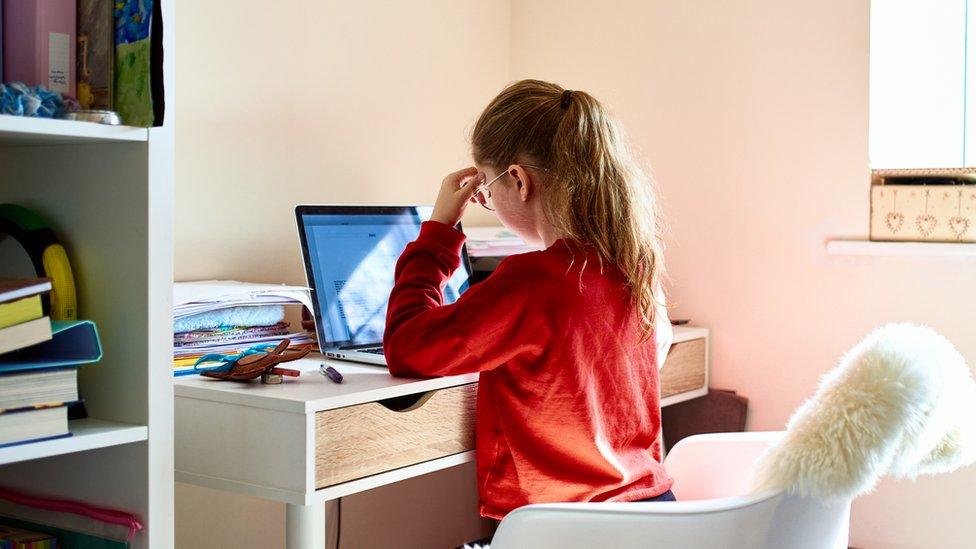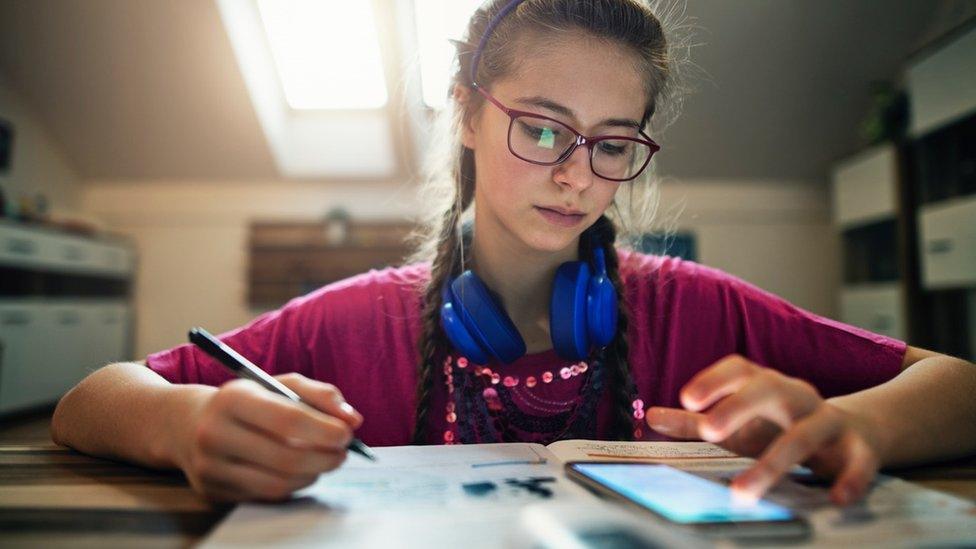Mobile networks to make Oak lessons site data-free
- Published
- comments

It is hoped the scheme help pupils like eight-year-old Alice Wilkinson in Manchester with their home schooling
Mobile networks are to make online education resource Oak National Academy free to access until schools reopen.
Mobile customers with O2, Three, Vodafone, EE, BT, Virgin, Sky and Plusnet will be able to browse the site even if they are out of data.
The government-funded website was launched in last year's first lockdown, as a learning hub in England.
BT customers will get similar data-free access to BBC Bitesize, as part of a "Lockdown Learning" initiative.
“The telecoms firms are now really stepping up, and thanks to them, universal access could be a reality,” said Matt Hood, principal of Oak National Academy.
“There are technical issues to resolve, but we’re confident with everyone around the table that these are not insurmountable.
“Everyone wants to do the right thing for the country’s children, and I’m delighted that we’ve come together to make this happen.”
The telecoms firms have yet to confirm exactly when the free data access will begin, with the exception of BT which said it would be by the end of January.
BT has also invited the Scottish, Welsh and Northern Irish governments to each recommend one online resource for schoolchildren, which it will seek to zero rate.
Zero-rating means customers are able to use approved websites for free, regardless of any data plans.
“Our inclusive support package means families that need it most can get help to keep learning, with unlimited data, free access to our five million WiFi hotspots and now free access to the two most popular educational resources,” said Marc Allera, chief executive of BT's consumer division.
The firm has also offered support to 10,000 families in England with vouchers for internet access, which will be distributed by the Department for Education.
Virtual School: Online classes keeping students learning
The current UK lockdowns mean most children are now learning from home.
In England, primary and secondary schools have moved to remote learning for most pupils
In Scotland, schools will remain closed to the majority of pupils until at least 1 February, external
In Wales, all schools and colleges will move to online learning until at least the end of January
In Northern Ireland, many pupils will not return to school until after the half-term break in mid-February
Government has said schools must provide between three and five hours of online content per day., external
According to UK media watchdog Ofcom, some 880,000 families are reliant solely on mobile connections, and many have data limitations.


It seemed like a great idea when it was floated a couple of weeks ago as schools went into lockdown again - get the telecoms firms to waive data charges for accessing all educational sites via a mobile connection.
That way you wouldn't have to identify which children were in special need of support - anyone could use those sites without racking up a bill.
But it was immediately clear there were some big issues with this plan - principally, how to decide which sites to zero rate?
After all, schools use all kinds of platforms for online learning, from the Oak Academy to Google Classroom to YouTube.
From a cost point of view you couldn't zero rate the likes of YouTube or Zoom because that would mean everyone would get access for nothing, whether or not they were using the sites for educational purposes. "We wouldn't have a business if we did that," said a spokesman for one telecoms firm.
The other issue is net neutrality - the principle that all internet traffic should be treated equally.
On its website, the regulator Ofcom says broadband providers "must treat all internet traffic on their networks equally, and not favour certain websites or services".
In the event it looks as though just two services - the Oak Academy and BBC Bitesize - are going to get special treatment, although the Scottish, Welsh and Northern Irish administrations are also being invited to nominate a platform their schools use.
It seems that Ofcom is prepared to waive the rules in this emergency situation, but both the regulator and the telecoms companies have made clear this is a temporary solution - and will end once schools reopen.
Related topics
- Published5 January 2021

- Published11 January 2021

- Published16 June 2020

- Published17 January 2021

- Published11 January 2021
